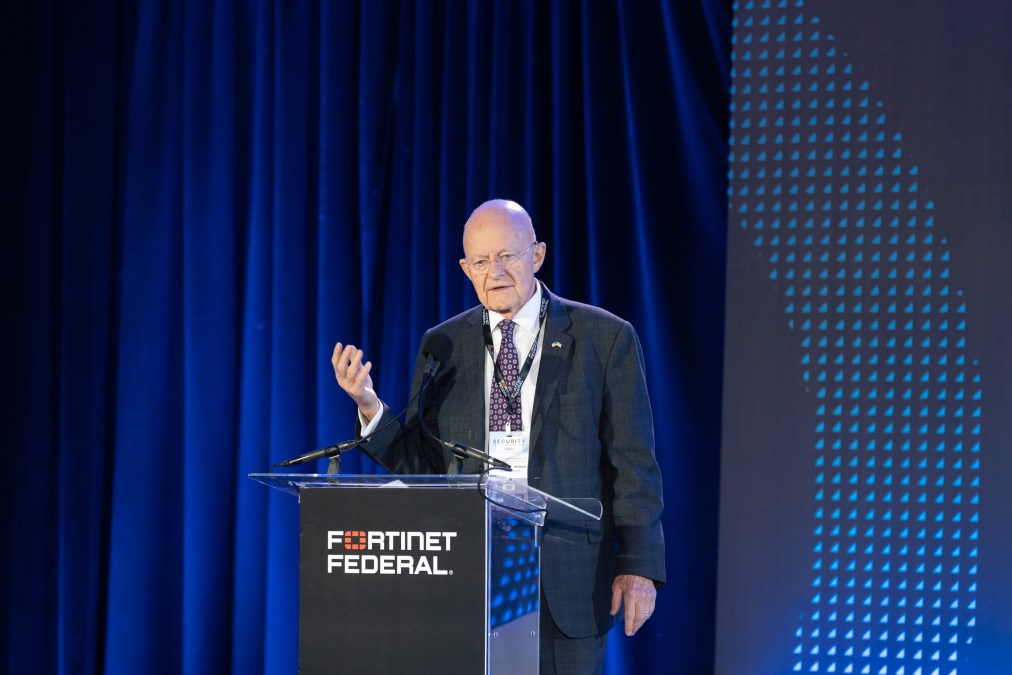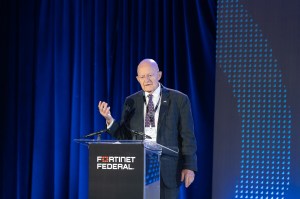James Clapper: ‘The internet today is less free, more segmented and less secure that it ever has been’

Dealing with an increasingly fragmented global internet remains one of the most significant foreign policy challenges facing the U.S., according to retired Director of National Intelligence Lt. Gen. James Clapper.
Speaking Thursday at the Fortinet Security Transformation Summit hosted by FedScoop, Clapper said the myriad versions of the internet that exist in authoritarian regimes demand a nuanced response.
“The internet today Is less free, more fragmented and less secure than it ever has been … the internet as we would have liked to experience it is dead,” said the former intelligence community leader as DNI during the Obama administration and previously as undersecretary of defense for intelligence in two prior administrations.
Clapper noted that in the past seven years, 60 nation states have temporarily cut connectivity to the internet more than 900 times. This contrasts with the U.S., where a free internet now forms a cornerstone of democracy and the economy, with 70% of new value in the economy expected in the coming years to be digitally based.
Speaking at the event, Clapper said the approach to dealing with the fragmented internet should center on consolidating its vision of the internet with friends and allies and deploying more targeted economic pressure on adversaries that conduct offensive cyber operations.
The former intelligence leader added that further integration of U.S. cyber capabilities with its military apparatus remains crucial and highlighted the challenges agencies face when seeking to conduct offensive cyber operations.
“We fail to impost sufficient costs on attackers,” he said, noting that many hostile countries do not adhere to cyber norms and legal frameworks.
Clapper added that the ability of cyber criminals to destroy huge value from the U.S. economy remains a major concern. “Cybercrime should be considered a national security threat.”




